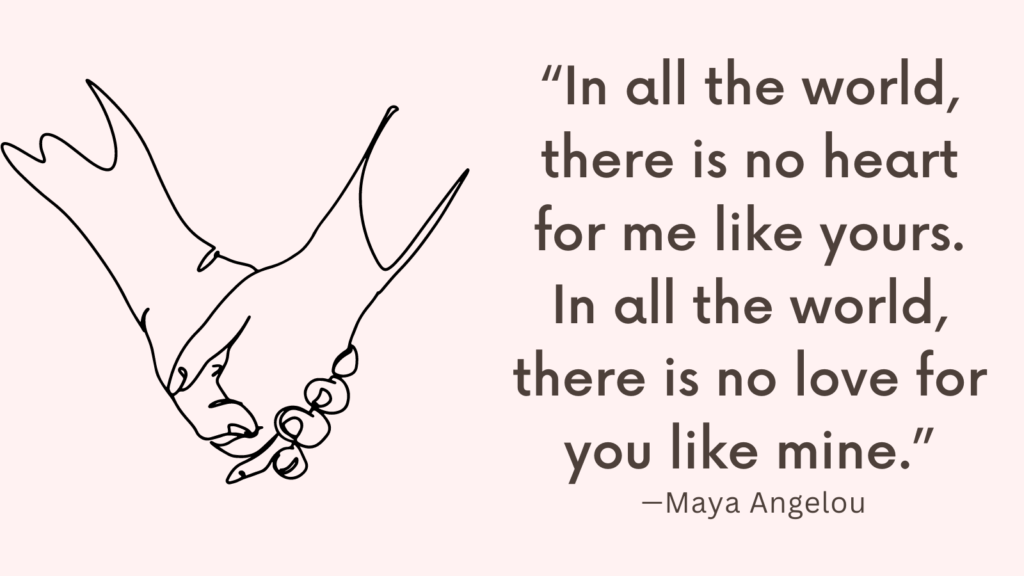In this post, you’re going to find out common types of breakups that get back together.
Types of Breakups That Get Back Together
When it comes to breakups, not all relationships are permanently severed. In fact, some couples find their way back to each other after a breakup.
The following are some of the common types of breakups that get back together:
1. Temporary Breakups
Temporary breakups are usually characterized by a period of time where the couple decides to take a break from their relationship, with the intention of reassessing their feelings and needs.
Temporary breakups can occur due to various reasons such as conflicts, lack of communication, or personal growth.
During this break, individuals have the opportunity to reflect on their relationship and address any underlying issues.
This time apart allows them to gain clarity, focus on self-improvement, and evaluate whether they truly want to continue the relationship.
In some cases, temporary breakups can strengthen a couple’s bond as they work through their problems and rediscover their love for each other.
Related: How To Save Your Relationship From A Breakup? 5 Steps To Strengthen Your Relationship
2. Relationship Breakdowns Due to External Factors
These external factors can range from long-distance challenges and career demands to family or cultural expectations.
While every situation is unique, there are a few common types of breakups in which couples have a greater chance of reuniting.
One type of breakup that often leads to getting back together is caused by long-distance challenges.
When two people are unable to see each other frequently due to geographical distances, it can put a strain on the relationship.
However, if the love and connection between the couple remain strong, they may choose to work through the obstacles and find ways to make it work.
This could involve regular communication, creative ways to bridge the distance, or eventually deciding to live in the same location.
Career demands can also contribute to relationship breakdowns, particularly when one or both partners are pursuing demanding careers that consume a significant amount of their time and energy.
In such cases, the relationship may become neglected, leading to feelings of disconnect and frustration.
However, if both partners truly value their connection and are willing to make compromises and prioritize their relationship, they can find a way to reestablish balance and rebuild trust, allowing them to get back together.
Family or cultural expectations can sometimes cause relationships to break down.
For instance, when a couple belongs to different cultural backgrounds or when families disapprove of the relationship, it can create immense tension and pressure.
Despite these external influences, if the couple remains committed to each other and truly believes in their love, they may decide to confront these challenges head-on.
By finding ways to address and bridge the gaps between their families or cultural differences, they can defy the odds and reunite.
Related: Top 7 Tips On How To Create A Conscious Relationship Using ACT
3. Breakups Due to Miscommunication
In cases where miscommunication was the cause of the breakup, individuals may realize that their words or actions were misunderstood, leading to unnecessary conflict.
It could be a simple misunderstanding that, with open and honest communication, can be resolved.
For instance, one partner might have interpreted a comment as insensitive, while the other meant it as a joke.
By talking through their feelings and clarifying their intentions, the couple may realize that they still share a strong emotional connection.
Related: Earned Secure Attachment: What Is It And How To Become More Securely Attached?
4. Breakups Due to Lack of Compatibility
Breakups caused by a lack of compatibility can sometimes be overcome as individuals grow and evolve over time.
People change, and perhaps what didn’t work in the past could align better in the present or future.
It is essential for both parties to reflect on what went wrong, identify areas of growth, and determine if they are willing to put in the effort to make the relationship work.
In these cases, couples may find that they still cherish each other’s qualities and are willing to compromise or adapt to create a healthier, more compatible dynamic.
Related: Best 10 Books On Emotional Unavailability
5. Breakups Caused by Personal Growth and Self-Discovery
Breakups caused by personal growth and self-discovery are a unique type of breakup that has the potential to lead to getting back together.
These breakups occur when individuals feel the need to take time apart from their partner in order to focus on themselves and their personal development.
This could stem from a desire for self-improvement, career goals, or simply the need to find oneself.
During this time apart, individuals have the opportunity to explore their own interests, values, and aspirations without the influence of a romantic relationship.
They may dedicate time to hobbies, pursue new experiences, or engage in self-reflection.
In some cases, this self-discovery journey can lead individuals back to their ex-partner with a newfound sense of self-awareness and understanding.
Eventually, they may decide to get back together, with a stronger foundation based on their personal growth and self-discovery.
One important aspect of these types of breakups is communication.
It is crucial for individuals to keep an open line of dialogue throughout their time apart, allowing them to share their experiences, concerns, and aspirations.
This helps both parties understand and support each other’s personal journeys, fostering a sense of empathy and shared growth.
It is worth noting that not all breakups caused by personal growth and self-discovery result in reuniting.
Sometimes, individuals may discover that they have grown apart and no longer align with each other’s values, goals, or aspirations.
In such cases, parting ways amicably and with gratitude for the lessons learned during the relationship becomes important for personal fulfillment.
Related: Yellow Flags In A Relationship
6. Relationships Rekindled Through Professional Help
There are several types of breakups that have the potential to be rekindled through professional help.
One common scenario is when a couple faces communication issues that lead to misunderstandings and conflicts.
By seeking the guidance of a relationship counselor or therapist, couples can learn effective communication strategies to better understand each other’s needs and resolve conflicts more constructively.
For example, a couple may realize that poor communication led to frequent arguments and decide to seek help in improving their communication skills.
Another type of breakup that often benefits from professional help is when trust has been broken, such as infidelity or lies.
Couples may turn to a marriage counselor or therapist to work through the pain, rebuild trust, and establish new boundaries.
This process can be long and challenging, but with professional guidance, couples can address the underlying issues and make the necessary changes to restore the relationship.
Additionally, couples who experience difficulties due to lifestyle differences, career demands, or financial hardships may also benefit from professional help.
Through counseling or coaching, they can learn to navigate these challenges, make compromises, and find a balance that works for both partners.
It is important to remember that every relationship is unique, and not all breakups can or should be resolved through professional help.
However, seeking assistance from trained professionals can provide couples with valuable tools, insights, and support needed to address the issues that contributed to the breakup and possibly reconcile their relationship.
Related: Do We Need Couples Therapy Quiz
Common Signs Suggesting The Possibility Of Getting Back Together
While every situation is unique, there are a few common signs that may suggest the possibility of getting back together after a breakup:
1. Continued communication: If both parties continue to reach out and stay in touch even after the breakup, it may indicate that there is still an emotional connection and a desire for a future reconciliation.
2. Emotional openness and vulnerability: When both individuals are willing to express their feelings, discuss the reasons behind the breakup, and show a genuine willingness to work on the issues that led to the separation, it can be a positive sign that they are considering getting back together.
3. Mutual respect and care: If both individuals still demonstrate respect and care for each other’s well-being, even after the breakup, it suggests that the foundation for a healthy relationship might still exist.
4. Positive changes: If both parties have made noticeable efforts to address personal issues or improve themselves since the breakup, it can indicate a commitment to growth and a desire to build a healthier relationship in the future.
5. Shared goals and visions: When both individuals have similar long-term goals and visions for the future, it can create a strong bond and motivation to work on the relationship, increasing the likelihood of getting back together.
It’s important to remember that these signs don’t guarantee a reunion, and every situation is unique.
Open communication and honest discussions about expectations and intentions are crucial when considering the possibility of getting back together.
Related: Top 8 Tips On How To Get Past Infidelity Triggers And Build Trust Again (+FREE Worksheets)

Conclusion
It’s important to note that not all relationships are meant to be revived, and in some cases, it may be healthier for individuals to move on and find new paths.
However, for those couples who genuinely believe in their connection and are willing to invest the time, effort, and understanding required, getting back together after a breakup.
Ultimately, only the individuals involved can determine whether a reunion is worth pursuing, but with open communication, patience, and a willingness to overcome external challenges, the possibility of finding their way back to each other exists.



